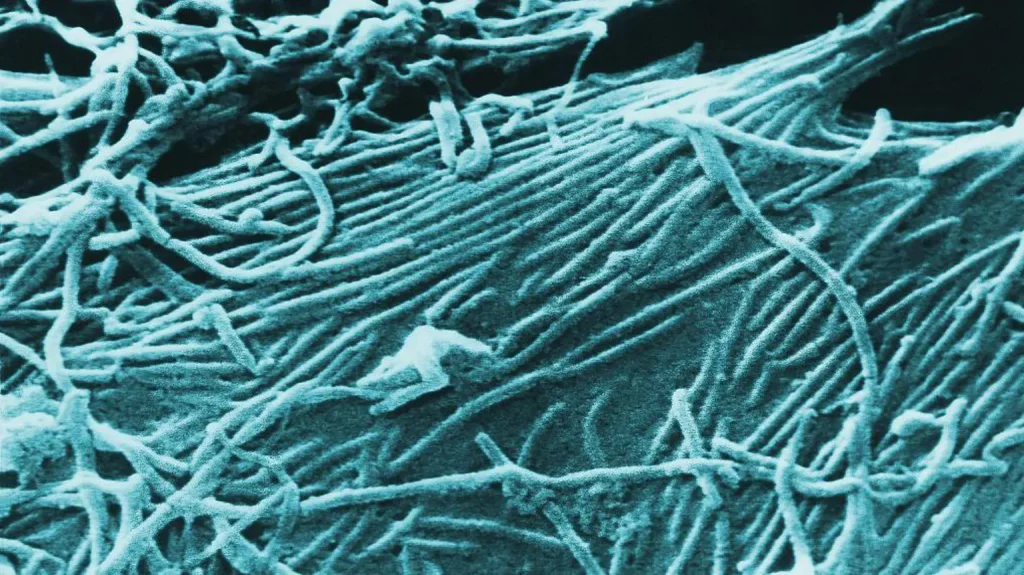
Uganda’s Ministry of Health has confirmed a new outbreak of the Ebola virus in the capital city, Kampala, with one reported fatality. The victim, a 32-year-old male nurse, succumbed to the virus on Wednesday at Mulago National Hospital after suffering multi-organ failure.
According to health officials, the nurse exhibited severe symptoms, including high fever, chest pain, breathing difficulties, and bleeding from multiple body sites before his death. Before his diagnosis, he had visited multiple health facilities and a traditional healer in search of treatment. He also traveled to a public hospital in Mbale, a city near the Kenyan border, raising concerns about the potential spread of the virus beyond Uganda.
Authorities identified 44 contacts, including 30 healthcare workers, for monitoring and tracing, while rapid response teams have been deployed to contain the outbreak. However, health officials warn that contact tracing may prove difficult as Kampala, a city of over four million people, serves as a major travel hub for South Sudan, DR Congo, Rwanda, and other neighboring countries.
The outbreak has been linked to the Sudan Ebola Virus Disease (SUDV), one of several known strains of the Ebola virus that causes severe hemorrhagic fever. Unlike the Zaire strain, there is currently no approved vaccine for SUDV, making containment efforts more challenging.
Uganda has experienced eight Ebola outbreaks since the virus was first documented in the country in 2000. The last outbreak occurred in September 2022 and was also caused by the Sudan strain, lasting four months before it was declared over.
Ebola is a highly infectious disease, with symptoms including fever, fatigue, muscle pain, headache, vomiting, diarrhea, rash, and internal/external bleeding. According to the World Health Organization (WHO), the virus has an average fatality rate of 50%, though past outbreaks have seen mortality rates ranging from 25% to 90% depending on response measures.
Authorities are urging the public to exercise caution, report symptoms immediately, and avoid direct contact with suspected cases.








